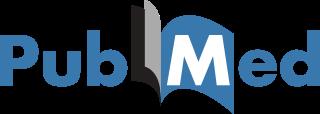This is a re-repost of a blog first posted over four years ago - with minor updates. So many have joined since then, it possibly bears repetition.
I want everyone to have the opportunity to find things out for themselves. This gives you freedom. Freedom to believe. Freedom to deny.
The most important single medical research tool (other than maybe Google) is PubMed. So this is a brief introduction to help those of you who wish to get started.
Scientific and medical papers are published in huge numbers every year. The problem that people have is finding the information they are interested in within this gigantic volume.
The National Center for Biotechnology Information, U.S. National Library of Medicine has addressed this problem by creating PubMed – a super index of these papers.
Over the past years papers from a major proportion of the world’s journals have been added to PubMed as they are published. And there has been a major effort to index papers going back at least to the mid 1800s - though that is very far from complete.
PubMed has some very clever features – for example if you type in “thyroxine” the system automatically searches for the following terms (and also many of the major brand names of levothyroxine) using a facility known as MeSH:
L-3,5,3',5'-Tetraiodothyronine
L-Thyroxine
L Thyroxine
Thyroxin
O-(4-Hydroxy-3,5-diiodophenyl) 3,5-diiodo-L-tyrosine
O-(4-Hydroxy-3,5-diiodophenyl)-3,5-diiodotyrosine
T4 Thyroid Hormone
Thyroid Hormone, T4
3,5,3',5'-Tetraiodothyronine
Levothyroxine
So, how do you use PubMed?
You follow this link:
Then type your search terms into the long box, and hit Search.
Your search terms could be a number of words hashimoto thyroiditis selenium or whatever you are interested in. Or the title of a paper. Or the authors of a paper. Every word of every paper is indexed.
Try to type them correctly otherwise you might not find what you are looking for.
PubMed then displays the results it finds, which could be from none to many thousands. What it displays for each paper varies but usually has the title, authors, journal name and PubMed ID. If you do nothing else, note the PMID of papers your find interesting - you can search on just the PMID to retrieve the paper again.
You can click on a paper’s title to view the abstract (if there is one) and more details.
When viewing an abstract look to the top right of the page and you will usually see links to the original paper in its original journal. Historically journals have not allowed public access, but more and more papers are being made available in full. When the full paper is available it may be held in PubMed Central – which exists for this purpose. If so, the paper will have the tag Free Article alongside its listing.
At the top right of the screen you should see an area that says Filter your results with the options All, Free Full Text and Review. Using these you can restrict the results only to papers that are freely available. Or to review papers – something like this:
Thyroid function in pregnancy
Lazarus JH.
Br Med Bull. 2011;97(1):137-48. Epub 2010 Dec 23. Review.
PMID: 21186204
PubMed has some fantastic other facilities like the ability to get regular alerts when new papers are published that cover the subjects of your interest. Or to search through gene data. Or chemical substances. Or the Advance Search to narrow your results by all sorts of factors (dates, journals, authors and so on).
Please do let me have feedback – by private message or in public – so I can respond with appropriate changes or additions.
You can download a PDF version of the above, with added pictures, from here:
dl.dropbox.com/u/318411/Int...
PubMed's own Quick Start Guide here:
ncbi.nlm.nih.gov/books/NBK3...
Happy searching
Rod

